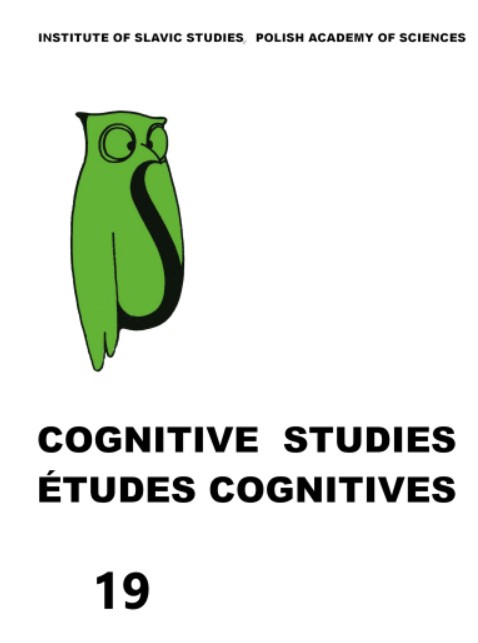SETTINGS AND PARTICIPANTS: ANALOGOUS SEMANTIC EXTENSIONS IN CONCEPTUALLY REMOTE DOMAINS
SETTINGS AND PARTICIPANTS: ANALOGOUS SEMANTIC EXTENSIONS IN CONCEPTUALLY REMOTE DOMAINS
Author(s): Piotr TwardziszSubject(s): Morphology, Syntax, Lexis, Semantics, Cognitive linguistics, Philology
Published by: Instytut Slawistyki Polskiej Akademii Nauk
Keywords: zero-derivation; conversion; semantic extension; domain; setting; participant; meteorological expression; state name;
Summary/Abstract: This article concerns a phenomenon, claimed to be semantic in nature, which can be observed in expressions from conceptually distant categories. The phenomenon in question consists in the modification of lexical categories in which the form of the words is retained, but their meanings undergo essential, yet analogous, shifts. The two domains selected for the purpose of this study are so-called meteorological expressions (e.g., it’s raining, snow fell etc.) and the names of political states (France, Mexico, Vietnam etc.). These domains are mutually independent and constitute unrelated areas of knowledge. What is intriguing, however, is the similarity of the semantic shifts, also known as conversion or zero-derivation, which occur in these categories. The term “semantic extension” has been chosen as a convenient shorthand for the phenomenon in question. The article argues that due to altered profiles imposed on essentially the same base, the semantic extension under investigation results in shifts between the profiles of a “setting”, a “participant” and a “process”. In a comparative perspective between the two domains in question, zero-derived settings and participants alternate on a regular basis. The analysis applied here adopts tools exploited in cognitive grammar (e.g., profile, base). If semantic extensions towards settings and participants can be confirmed in such distant domains, further research can be undertaken in other domains. If related semantic effects are found in more domains, the semantic categories of a setting and a participant should be included in descriptive grammars.
Journal: Cognitive Studies | Études cognitives
- Issue Year: 2019
- Issue No: 19
- Page Range: 1-14
- Page Count: 14
- Language: English

